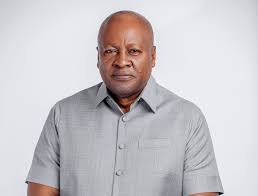President John Dramani Mahama has ordered the immediate termination of all existing government contracts with Strategic Mobilisation Ghana Limited (SML) following the conclusion of an investigation by the Office of the Special Prosecutor (OSP) that raised serious concerns over the value and legitimacy of the agreements.
The directive, conveyed through a formal letter signed by Dr. Callistus Mahama, Executive Secretary to the President, and addressed to the Minister of Finance, instructed the ministry to “take immediate steps to terminate all SML-related contracts forthwith.”
This development marks a significant turning point in one of Ghana’s most contentious public sector deals, which has dominated the national conversation around government accountability, procurement transparency, and revenue assurance.
The President’s decision follows the publication of the OSP’s final report on the SML contracts. The investigation concluded that there was “no genuine need” for the services SML was contracted to perform and that the company’s engagements offered no demonstrable value for money.
The OSP’s findings, described as a “masterfully and mischievously crafted scheme,” questioned how SML was awarded multiple government contracts without sufficient due diligence. According to the report, over GH¢1.4 billion had already been disbursed to the company with limited evidence of oversight or measurable results.
The probe further implicated former Finance Minister Ken Ofori-Atta, alleging that his office facilitated the agreements without adequate justification. While the OSP stopped short of criminal charges, it recommended that government take immediate administrative action to terminate the contracts and prevent further losses to the state.
Sources within the Presidency confirmed that Mahama’s decision was driven by a desire to uphold the integrity of Ghana’s procurement processes and restore public confidence in the management of state resources.

The Strategic Mobilisation Ghana Limited contracts were initiated between 2019 and 2020 under the Ghana Revenue Authority (GRA) and the Ministry of Finance. The company was engaged to provide revenue assurance services aimed at increasing transparency and curbing leakages in the downstream petroleum sector.
Over time, the contract scope was expanded to include upstream oil and gas operations as well as the mining value chain, with SML claiming it could help Ghana save hundreds of millions of cedis annually in lost tax revenue.
However, the deal quickly attracted public scrutiny after investigative reports revealed that SML’s claimed savings could not be independently verified. Critics, including civil society groups and energy sector experts, also raised red flags over the company’s limited track record and questionable technical expertise.
The contract’s single-sourced nature further drew condemnation, with procurement analysts warning that such deals often bypass competitive bidding processes designed to protect public funds.
Public reaction to the President’s decision has been largely positive, with many citizens and transparency advocates describing the move as a “necessary corrective step.”
Speaking to 3News on Thursday, a member of the Ghana Integrity Initiative (GII) noted that the termination of the SML deal should serve as a warning to both current and future officials handling state contracts.
“This decision sends a strong message that public resources must be managed prudently and that contracts must be based on proven need, competence, and transparency,” the representative said.
Economists have also pointed out that the controversy surrounding the SML contract highlights broader challenges in Ghana’s public financial management. According to data from the Ministry of Finance, Ghana loses an estimated GH¢12 billion annually through procurement irregularities and weak contract enforcement—figures that have raised calls for institutional reform and tighter oversight mechanisms.
Ghana’s decision to cancel the SML contracts resonates beyond its borders. Across Africa, governments are increasingly grappling with the issue of opaque revenue assurance contracts—especially in the oil, gas, and mining sectors.
In countries such as Nigeria and Uganda, similar agreements have been questioned for offering limited value while costing taxpayers millions of dollars annually. Ghana’s firm stance could, therefore, serve as a precedent for improved transparency in how African states engage private firms in the management of extractive sector revenues.
For Ghana, the move may also help rebuild confidence among international development partners and investors who have expressed concerns about governance standards and the country’s fiscal discipline.

The Ministry of Finance is now expected to outline a roadmap for winding down SML’s operations and ensuring a seamless transition in revenue monitoring services. It remains unclear whether government will seek to recover funds already paid to the company or initiate further legal proceedings.
Meanwhile, the OSP has hinted that additional administrative sanctions could follow, particularly for public officials found to have acted negligently in the award and supervision of the SML contracts.
Policy analysts argue that this development should motivate a comprehensive review of all ongoing public-private partnerships (PPPs) to prevent similar controversies. They also recommend that government adopt digital monitoring systems within the GRA and the petroleum sector to reduce reliance on external contractors.
President Mahama’s decision reflects a renewed emphasis on integrity, efficiency, and fiscal responsibility in government operations. As Ghana continues to navigate economic recovery, ensuring that public contracts deliver genuine value for money will be key to maintaining public trust and sustaining investor confidence.
While the termination of the SML contracts may mark the end of a controversial chapter, it also opens a new opportunity for Ghana to strengthen the systems that safeguard public funds—and set a stronger example for transparent governance across Africa.
Read also: Poor MP Attendance Raises Concern in Parliament — What It Means for Ghana

